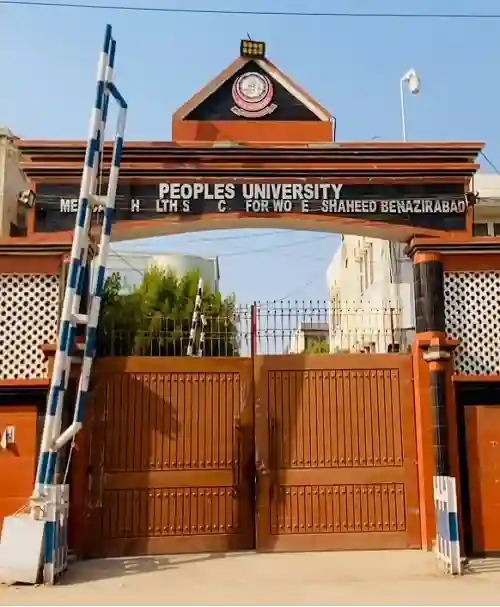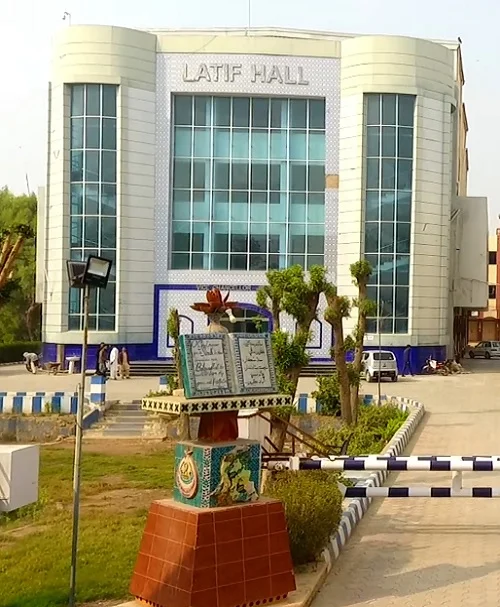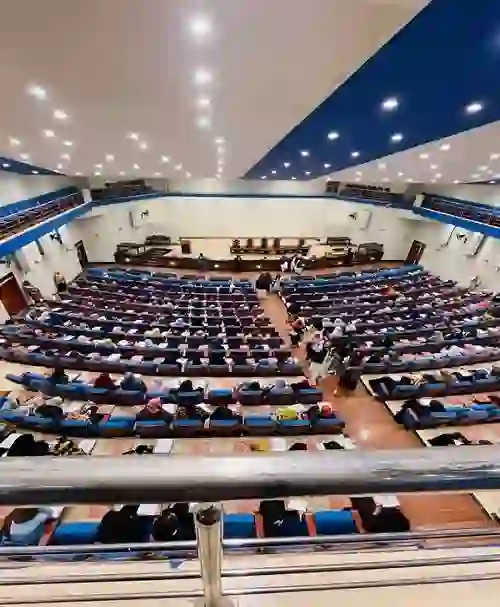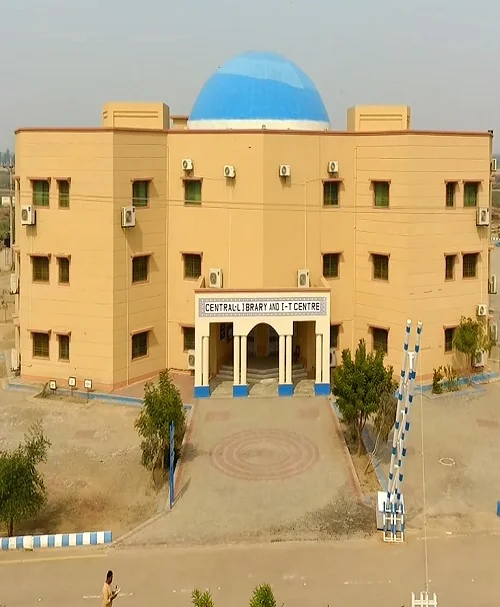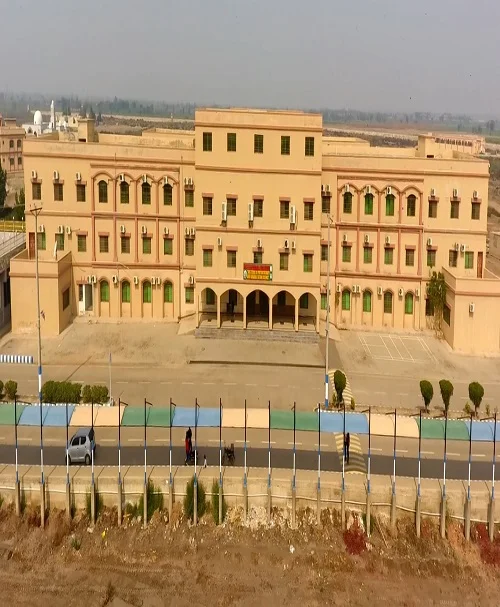Discipline Committee
Discipline Committee for Director of Student Affairs<br>
1. Purpose and Scope
The Discipline Committee is established to maintain and uphold the standards of behavior, conduct, and academic integrity within the student body. This committee addresses violations of the student code of conduct, academic dishonesty, and other disciplinary matters. The Director of Student Affairs plays a crucial role in overseeing and guiding the activities of this committee.
2. Composition
The Discipline Committee typically includes:
• Chairperson: A senior academic staff member or the Director of Student Affairs.
• Faculty Members: Representatives from various departments.
• Student Representatives: Selected through the student government or appointed by the Director of Student Affairs.
• Administrative Staff: Including the Dean of Students or similar roles.
3. Roles and Responsibilities
• Oversight: Ensures the committee functions efficiently and aligns with institutional policies.
• Policy Implementation: Enforces disciplinary policies and updates them as needed.
• Advisory Role: Advises on complex cases and ensures fair treatment of all parties.
• Communication: Acts as a liaison between the committee, administration, and student body.
• Record Keeping: Maintains accurate records of all proceedings and outcomes.
4. Committee Members:
• Case Review: Examine reported incidents, gather facts, and review evidence.
• Hearings: Conduct hearings with involved parties to understand the context and details of each case.
• Decision Making: Deliberate and decide on appropriate sanctions or corrective actions.
• Reporting: Document decisions and provide recommendations for policy changes.
5. Process and Procedures
1. Incident Reporting: Incidents are reported to the Director of Student Affairs or directly to the Discipline Committee.
2. Preliminary Review: The Director conducts an initial review to determine if a full investigation is warranted.
3. Investigation: Assigned committee members gather evidence, interview witnesses, and compile reports.
4. Hearing: A formal hearing is scheduled where the accused student(s) can present their case.
5. Deliberation: The committee discusses the findings and determines if a violation occurred.
6. Sanctions: Appropriate disciplinary actions are decided, which can range from warnings to suspension or expulsion.
7. Appeals: Students have the right to appeal decisions to a higher authority within the institution.
6. Sanctions and Penalties
• Warnings: Formal caution for minor infractions.
• Probation: Temporary status change with specific conditions.
• Suspension: Temporary removal from the institution.
• Expulsion: Permanent removal from the institution.
• Restorative Actions: Community service, counseling sessions, or other corrective measures.
7. Ethics and Confidentiality
• Fairness: Ensuring unbiased and impartial handling of all cases.
• Confidentiality: Maintaining strict confidentiality of all proceedings and records to protect the privacy of individuals involved.
• Transparency: Keeping all processes transparent to maintain trust in the committee's integrity.
8. Training and Development
• Regular training for committee members on legal updates, ethical considerations, and best practices in student discipline. By adhering to these guidelines, the Discipline Committee under the guidance of the Director of Student Affairs can effectively manage student conduct issues, ensuring a fair and respectful academic environment
1. Purpose and Scope
The Discipline Committee is established to maintain and uphold the standards of behavior, conduct, and academic integrity within the student body. This committee addresses violations of the student code of conduct, academic dishonesty, and other disciplinary matters. The Director of Student Affairs plays a crucial role in overseeing and guiding the activities of this committee.
2. Composition
The Discipline Committee typically includes:
• Chairperson: A senior academic staff member or the Director of Student Affairs.
• Faculty Members: Representatives from various departments.
• Student Representatives: Selected through the student government or appointed by the Director of Student Affairs.
• Administrative Staff: Including the Dean of Students or similar roles.
3. Roles and Responsibilities
• Oversight: Ensures the committee functions efficiently and aligns with institutional policies.
• Policy Implementation: Enforces disciplinary policies and updates them as needed.
• Advisory Role: Advises on complex cases and ensures fair treatment of all parties.
• Communication: Acts as a liaison between the committee, administration, and student body.
• Record Keeping: Maintains accurate records of all proceedings and outcomes.
4. Committee Members:
• Case Review: Examine reported incidents, gather facts, and review evidence.
• Hearings: Conduct hearings with involved parties to understand the context and details of each case.
• Decision Making: Deliberate and decide on appropriate sanctions or corrective actions.
• Reporting: Document decisions and provide recommendations for policy changes.
5. Process and Procedures
1. Incident Reporting: Incidents are reported to the Director of Student Affairs or directly to the Discipline Committee.
2. Preliminary Review: The Director conducts an initial review to determine if a full investigation is warranted.
3. Investigation: Assigned committee members gather evidence, interview witnesses, and compile reports.
4. Hearing: A formal hearing is scheduled where the accused student(s) can present their case.
5. Deliberation: The committee discusses the findings and determines if a violation occurred.
6. Sanctions: Appropriate disciplinary actions are decided, which can range from warnings to suspension or expulsion.
7. Appeals: Students have the right to appeal decisions to a higher authority within the institution.
6. Sanctions and Penalties
• Warnings: Formal caution for minor infractions.
• Probation: Temporary status change with specific conditions.
• Suspension: Temporary removal from the institution.
• Expulsion: Permanent removal from the institution.
• Restorative Actions: Community service, counseling sessions, or other corrective measures.
7. Ethics and Confidentiality
• Fairness: Ensuring unbiased and impartial handling of all cases.
• Confidentiality: Maintaining strict confidentiality of all proceedings and records to protect the privacy of individuals involved.
• Transparency: Keeping all processes transparent to maintain trust in the committee's integrity.
8. Training and Development
• Regular training for committee members on legal updates, ethical considerations, and best practices in student discipline. By adhering to these guidelines, the Discipline Committee under the guidance of the Director of Student Affairs can effectively manage student conduct issues, ensuring a fair and respectful academic environment


